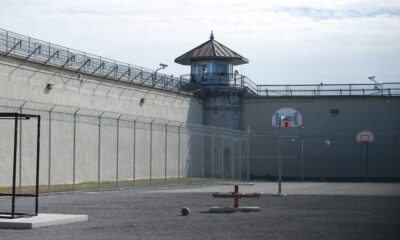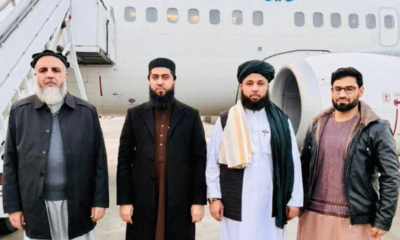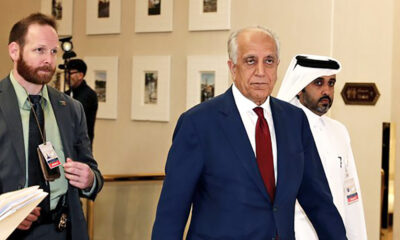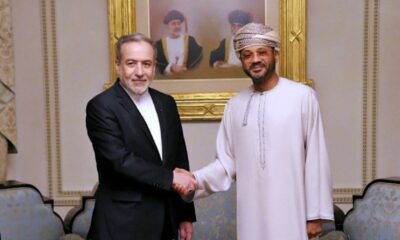Latest News
Rights watchdog calls for financial restricts on Afghanistan to be eased

Amnesty International has called on the international community to ease financial restrictions on Afghanistan that are blocking the provision of healthcare, food and other essential services, and expedite delivery of scaled-up humanitarian assistance to avert a mounting crisis that threatens the lives of tens of millions of people.
In a statement issued by the organization on Tuesday, the organization said the suspension of foreign aid, the freezing of Afghan government assets, and international sanctions on the Islamic Emirate of Afghanistan (IEA) have plunged a country already suffering from high poverty levels into a full-blown economic crisis.
“Current levels of humanitarian assistance are insufficient to deal with the crisis, with millions of Afghans plunging into poverty and facing the risk of starvation. We have seen countries making pledges and promises to provide aid to Afghanistan over recent months, but this support is yet to reach those who need it the most,” said Yamini Mishra, Amnesty International’s South Asia Regional Director.
“In just a few months, the situation is already critical. People in the public and private sectors have not been paid their salaries, can’t access money, and can’t afford even essential items.
“Afghanistan is at the precipice – without an urgent program of targeted international support and without permitting the use of Afghanistan government reserves to support the country’s population, the scene is set for a human catastrophe over the coming months.”
With the IEA remaining on lists of internationally sanctioned groups, Afghanistan’s foreign donors have moved to withhold and withdraw funding from the country.
The situation has left the country’s banking system on the brink of collapse. Long queues have formed outside banks and ATMs, which are not dispensing cash. The price of goods has soared while the country’s currency has plummeted in value.
In August, the Biden administration froze $9.5 billion assets. The EU followed suit on August 17, withdrawing $1.4 billion in development and emergency aid to Afghanistan’s healthcare, agriculture and law enforcement sectors. The withdrawal of the EU funding precipitated the immediate closure of at least 2,000 health facilities serving around 30 million Afghans.
The IMF has frozen the IEA’s to $460 million of funds and other international institutions including the World Bank and Asian Development Bank have also suspended payments to their projects in Afghanistan.
“Humanitarian aid and the use of public funds for essential services must not be politicized.
“Donor countries must urgently develop a comprehensive action plan for the dissemination of financial and humanitarian aid support in consultation with NGOs and other humanitarian agencies on the ground.
“This should include independent monitoring and enhanced periodic public reporting that ensures support reaches those who need it the most. At the same time, the Taliban (IEA) must cooperate in giving unrestricted access to UN agencies and humanitarian groups to do their work,” said Yamini Mishra.
“The international community’s top priority must be to prevent the deaths and suffering of people in Afghanistan and protect their human rights.”
Latest News
Azerbaijan releases 14 Afghan prisoners

Azerbaijan has released 14 Afghan nationals from its prisons, Afghan Ministry of Foreign Affairs said on Saturday.
The ministry said in a statement that the release happened following efforts by Afghanistan’s embassy in Baku.
The Ministry of Foreign Affairs expressed its appreciation to Azerbaijan and relevant authorities for their cooperation and humanitarian action. It also reaffirmed that the IEA will continue to follow up on and resolve the cases of Afghan prisoners.
Latest News
Khalilzad says U.S. ‘significantly satisfied’ with IEA’s fight against terrorism
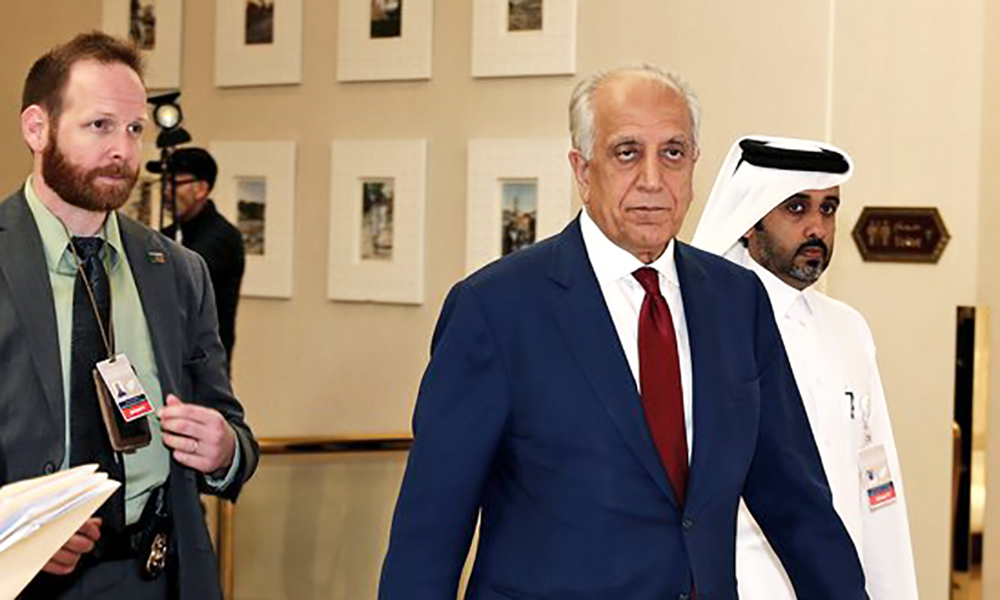
Former U.S. special envoy for Afghanistan, Zalmay Khalilzad, says Washington is largely satisfied with the Islamic Emirate of Afghanistan’s (IEA) efforts against terrorism, though progress in broader relations remains hindered by the issue of prisoners.
In an interview with NDTV, Khalilzad said the United States views the detention of at least two American citizens in Afghanistan as the primary obstacle to improving ties.
Khalilzad highlighted what he described as a “significant degree of satisfaction” in the U.S. assessment of the IEA’s counterterrorism commitments under the Doha Agreement. He said the IEA continue to fight Daesh, a group they have long considered an enemy. Many Daesh militants, he added, have been pushed out of Afghanistan and are now in Pakistan.
At the same time, Khalilzad said concerns remain regarding human rights and the political role of non-IEA Afghans.
Latest News
Afghanistan says Pakistan is shifting blame for its own security failures
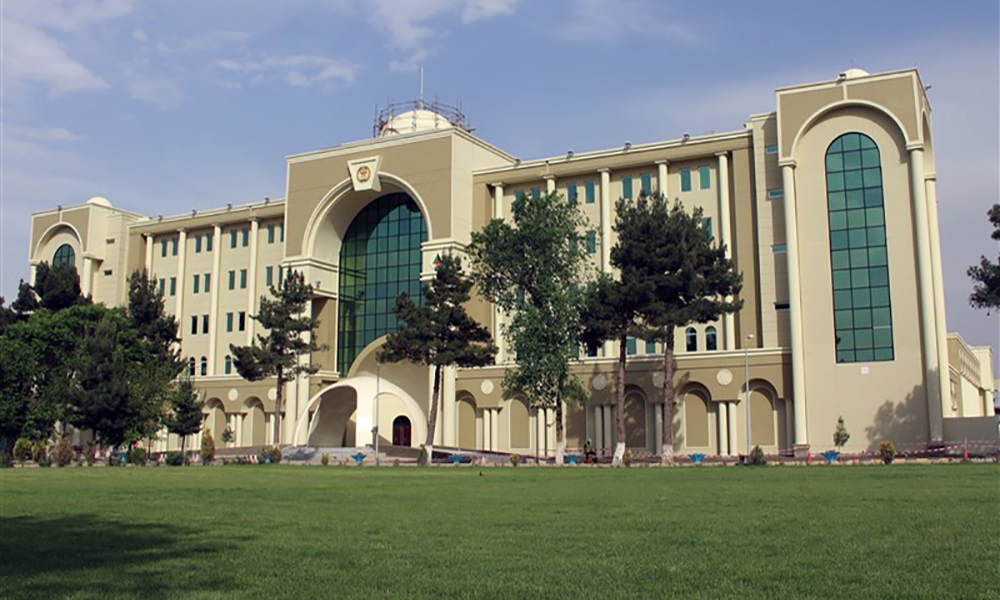
The Ministry of National Defense of the Islamic Emirate of Afghanistan has rejected recent accusations made by Pakistani officials following a deadly attack at a mosque in Islamabad, calling them “irresponsible” and “baseless.”
Pakistan’s Defense Minister Khawaja Mohammad Asif wrote on X that preliminary findings suggest the suicide bomber had been on the move to and from Afghanistan.
According to the Afghan Defense Ministry, Pakistan’s defense minister “immediately and irresponsibly” blamed Afghanistan for the attack without conducting proper investigations. Afghan authorities noted that this pattern has been repeated in the past, particularly regarding incidents in Balochistan and other security events inside Pakistan.
The ministry stated that linking such attacks to Afghanistan “has no logic or foundation,” adding that these statements cannot hide Pakistan’s internal security failures or help solve the underlying problems.
“If they were truly able to identify the perpetrators immediately after the incident, then why were they unable to prevent it beforehand?” the statement asked.
The Afghan government emphasized its commitment to Islamic values, stating it does not consider harm against innocent civilians permissible under any circumstances and does not support those involved in illegal acts.
The statement urged Pakistani security officials to take responsibility for their internal security shortcomings, review their policies, and adopt a more constructive and cooperative approach toward both their own citizens and neighboring countries.
-

 Sport4 days ago
Sport4 days agoJapan trumps Afghanistan 6-0 in AFC Futsal Asian Cup quarter-final
-

 Sport3 days ago
Sport3 days agoHosts and heavyweights advance as AFC Futsal Asian Cup reaches semifinals
-

 International Sports5 days ago
International Sports5 days agoPakistan to boycott T20 World Cup group match against India
-

 Sport5 days ago
Sport5 days agoAfghanistan crush Scotland in ICC T20 World Cup warm-up
-

 Latest News2 days ago
Latest News2 days agoTerrorist threat in Afghanistan must be taken seriously, China tells UNSC
-

 Latest News3 days ago
Latest News3 days agoUzbekistan, Pakistan advance Trans-Afghan railway project
-

 Business4 days ago
Business4 days agoAfghanistan seeks expanded ties with Russia in energy, mining and infrastructure
-

 Latest News5 days ago
Latest News5 days agoAfghanistan faces worsening water crisis as millions return home


